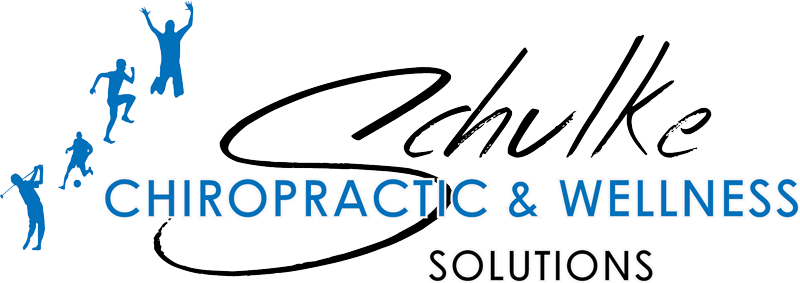The Power of Sleep: Why It’s the Ultimate Pillar of Health

In the hustle and bustle of modern life, sleep often takes a backseat to busy schedules and endless to-do lists. However, the importance of a good night’s sleep cannot be overstated. Sleep is not just a period of rest—it’s a vital process that rejuvenates the body, sharpens the mind, and enhances emotional well-being. Let’s explore the many ways sleep impacts our health and how you can harness its power for a better life.
1. Repairs and Restores: Sleep as Nature’s Healer
During sleep, your body engages in critical repair processes. Think of it as a nightly maintenance routine for your muscles, tissues, and cells. This is especially important if you lead an active lifestyle or are recovering from an illness. Deep sleep, in particular, is when your body releases growth hormones, which aid in cellular repair and muscle development.
Moreover, sleep promotes cardiovascular health. Your heart and blood vessels repair themselves during restful sleep, reducing the risk of heart disease and stroke. Skimping on sleep can disrupt this repair cycle, increasing inflammation and contributing to long-term health problems.
2. Boosts Immune Function: Your Nightly Shield
A strong immune system is your first line of defense against illness, and sleep plays a pivotal role in keeping it robust. During sleep, your body produces cytokines—proteins that help fight infection, inflammation, and stress. Without sufficient sleep, your immune response weakens, making you more susceptible to colds, flu, and other infections.
Studies have shown that people who sleep less than six hours a night are more likely to catch a cold than those who sleep seven or more hours. Consistent, quality sleep is one of the simplest ways to boost your immune function and stay healthier year-round.
3. Improves Brain Function: Fuel for Mental Clarity
Your brain is like a computer that needs regular reboots, and sleep provides that reset. While you sleep, your brain processes and consolidates memories, clears out toxins, and strengthens neural connections.
This nightly housekeeping improves concentration, problem-solving skills, and decision-making. Sleep-deprived individuals often experience cognitive impairment, including difficulty focusing, slower reaction times, and impaired judgment. Over time, chronic sleep deprivation can lead to memory problems and increase the risk of neurodegenerative diseases like Alzheimer’s.
For students, professionals, and creatives, sleep is an invaluable tool for boosting productivity and unlocking new ideas. In fact, many breakthrough moments have occurred after a good night’s sleep, proving that sometimes, stepping away and resting can lead to better solutions.
4. Enhances Emotional Well-Being: The Mood Regulator
Sleep and mental health are deeply interconnected. During sleep, your brain processes emotions and stress, helping you wake up with a clearer perspective. A lack of sleep, on the other hand, can exacerbate anxiety, irritability, and mood swings.
Research shows that sleep deprivation increases the risk of emotional disorders such as depression and anxiety. Without adequate rest, your brain struggles to regulate neurotransmitters like serotonin and dopamine, which are crucial for emotional stability.
On the flip side, prioritizing sleep can improve resilience, enhance your ability to handle stress, and make daily challenges feel more manageable. Emotional well-being starts with a well-rested mind.
5. The Sleep Cycle: Understanding How It Works
To fully appreciate the benefits of sleep, it’s important to understand the sleep cycle. Each night, your body goes through several cycles of non-REM (Rapid Eye Movement) and REM sleep.
- Non-REM Sleep: This is the restorative phase, consisting of three stages. Your body repairs itself, your immune system strengthens, and your energy reserves are replenished.
- REM Sleep: This is the dreaming phase, where your brain processes memories and emotions. REM sleep is crucial for cognitive function and emotional health.
A complete sleep cycle lasts about 90 minutes, and most adults need 4-6 cycles per night for optimal health. Disruptions to this cycle—whether from stress, caffeine, or irregular sleep schedules—can affect your overall well-being.
6. How Much Sleep Do You Need?
The amount of sleep required varies by age, but the National Sleep Foundation offers general guidelines:
- Infants (0-1 year): 14-17 hours
- Toddlers (1-2 years): 11-14 hours
- Children (6-13 years): 9-11 hours
- Teenagers (14-17 years): 8-10 hours
- Adults (18-64 years): 7-9 hours
- Older Adults (65+ years): 7-8 hours
While individual needs may vary, consistently sleeping less than the recommended amount can lead to significant health issues, including chronic fatigue, weight gain, and impaired immunity.
7. Tips for Better Sleep
If you’re struggling to get quality sleep, these tips can help:
- Stick to a Schedule: Go to bed and wake up at the same time every day, even on weekends.
- Create a Sleep-Friendly Environment: Keep your bedroom cool, dark, and quiet. Invest in comfortable bedding and reduce noise with earplugs or white noise machines.
- Limit Screen Time: Avoid screens for at least an hour before bed, as the blue light can interfere with melatonin production.
- Watch Your Diet: Avoid heavy meals, caffeine, and alcohol close to bedtime. Opt for a light snack if needed.
- Exercise Regularly: Regular physical activity can promote better sleep, but avoid intense workouts close to bedtime.
- Practice Relaxation Techniques: Try deep breathing, meditation, or reading to wind down before sleep.
8. The Consequences of Sleep Deprivation
Chronic sleep deprivation can have far-reaching effects on your health. In addition to increasing the risk of heart disease, diabetes, and obesity, lack of sleep can impair your mental health, leading to heightened stress and reduced coping skills.
Sleep-deprived individuals are also more prone to accidents and injuries, as fatigue slows reaction times and impairs decision-making. For example, driving while sleep-deprived is comparable to driving under the influence of alcohol in terms of risk.
9. The Power of Napping
For those who can’t get enough sleep at night, napping can provide a quick energy boost. Short naps (10-20 minutes) are especially effective for improving alertness and mood without leaving you groggy. However, avoid long naps late in the day, as they can interfere with nighttime sleep.
10. Sleep and Longevity
Research has shown that people who consistently get enough sleep live longer, healthier lives. Sleep helps protect against chronic diseases, supports mental health, and enhances overall quality of life. Prioritizing sleep isn’t just about feeling good the next day—it’s an investment in your future health and happiness.
Sleep is one of the most powerful tools for maintaining physical health, mental clarity, and emotional balance. By making sleep a priority, you can unlock its transformative benefits and lead a healthier, more productive life.
Start small: set a consistent bedtime, create a calming nighttime routine, and give your body the rest it deserves. The rewards of quality sleep are immeasurable—and they’re just a dream away.
